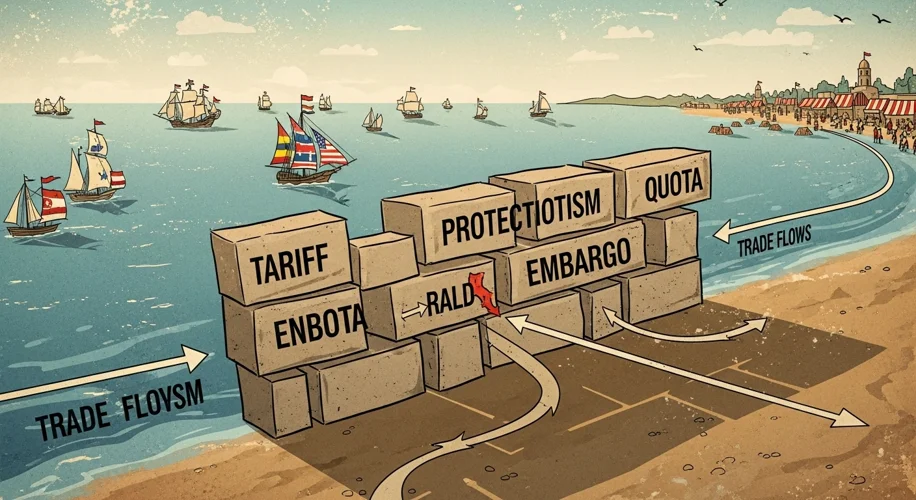It’s easy to get caught up in the daily headlines about trade disputes. But if we step back for a moment, we can see that these aren’t entirely new phenomena. History offers a fascinating, and sometimes sobering, perspective on the rise of protectionism and the recurring patterns of trade wars.
One of the most striking examples from the past is the Smoot-Hawley Tariff Act of 1930 in the United States. In an effort to protect American farmers and industries during the Great Depression, Congress significantly raised tariffs on thousands of imported goods. The idea was simple: make foreign products more expensive, encouraging Americans to buy domestic ones. Sounds logical, right?
But the reality played out very differently. Other countries, feeling the sting of these tariffs, retaliated with their own tariffs on American goods. This tit-for-tat escalation choked off international trade, making it harder for everyone to sell their products abroad. Instead of helping the struggling economy, it arguably deepened and prolonged the Depression. It’s a stark reminder that when one nation builds up trade barriers, others often follow suit, leading to a cycle that can harm global commerce.
If we look even further back, we see the principles of mercantilism, a dominant economic theory from the 16th to 18th centuries. Mercantilist nations believed that a country’s wealth was measured by its stock of gold and silver. To increase this, they aimed to export more than they imported. This often involved using tariffs, subsidies, and colonies to ensure a favorable balance of trade. Like Smoot-Hawley, mercantilism prioritized national gain, often at the expense of other nations, and fostered a climate of competition and sometimes conflict.
What are the recurring patterns here?
First, there’s the impulse to protect domestic industries and jobs, often driven by economic hardship or nationalistic sentiment. Second, there’s the inevitable cycle of retaliation. When one country imposes tariffs, others tend to respond in kind, escalating the situation. Finally, these policies often have unintended consequences, disrupting supply chains, increasing costs for consumers and businesses, and potentially hindering overall economic growth.
These historical lessons offer a valuable framework for understanding current trade tensions. The arguments for protectionism often center on safeguarding national interests and jobs. However, the historical evidence suggests that the long-term effects can be detrimental, not just to global partners but to the nation implementing the protectionist measures themselves.
Considering the ethical and social impact is also crucial. When trade flows are restricted, it can affect job markets, the availability and cost of goods, and even international relations. The interconnectedness of our modern world means that economic decisions in one country can have far-reaching consequences for people and communities across the globe.
As we navigate today’s complex economic landscape, it’s worth remembering these historical echoes. Understanding past patterns doesn’t provide all the answers, but it does offer a vital perspective as we consider the arguments for and against free trade, and the real-world impact of protectionist policies.

